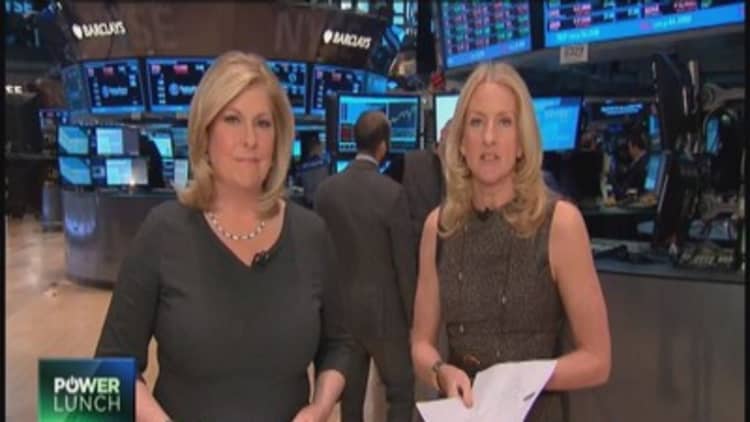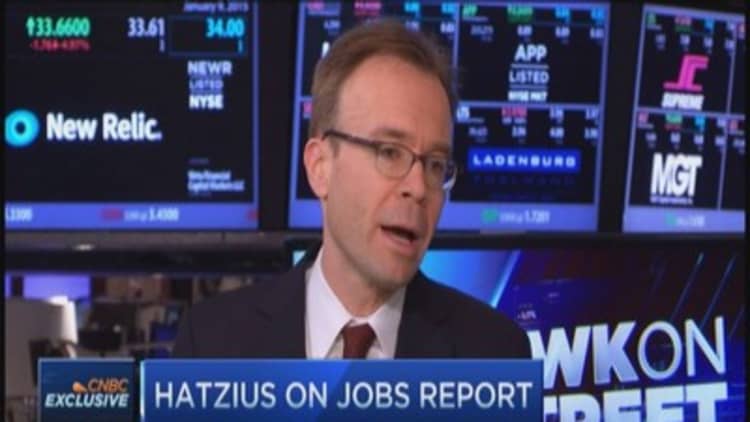
U.S. stocks dropped on Friday, pulling benchmarks back into the red for the year, as the December jobs report topped expectations but hourly earnings declined, and investors tracked events in France after Wednesday's massacre at Charlie Hebdo magazine in Paris.
Market analysts generally downplayed the notion that Friday's declines had much to do with the labor report.
"It's been such a volatile week, people shouldn't read too much into one-day moves," David Kelly, chief market strategist at JPMorgan Funds, said, referring to a week that has so far had the Dow Jones Industrial Average finishing each day a triple-digit move in either direction.
Others pointed to overseas concerns as a factor.
"We think the market has caught up with the 'terrorism fear.' Since the beginning of the French ordeal the markets have ignored the event. We believe the escalation of the situation gave investors a reason to worry," Peter Cardillo, chief market economist at Rockwell Capital, wrote in an email.
"It was a really positive jobs report. I know the market sold off here in an aftermath reaction, but we just had an incredible rally, it's a Friday, we have the situation in Paris, we're setting up for the upcoming weekend and we have earnings starting next week," JJ Kinahan, chief strategist at TD Ameritrade, said of investor unease.
"And then there's the crude-oil situation, until you see three weeks of stability in crude, it's going to spell volatility in the market," Kinahan added of crude's seventh weekly drop.
The CBOE Volatility Index, a measure of investor uncertainty, rose 3.2 percent to 17.55.
The figures from the Labor Department had the U.S. economy adding 252,000 to payrolls last month, and the November already robust gain revised higher, to 353,000, prompting stock-index futures to reverse higher ahead of the open.
But the enthusiasm proved short lived.
Major U.S. Indexes
Quickly erasing a 7-point opening gain, the Dow Jones Industrial Average dropped as much as 221 points, and ended down 170.50 points, or 1 percent, at 17,737.37, leaving it down 0.5 percent for the week.
Chevron led blue-chip declines that extended to 25 of 30 components.
The shed 17.33 points, or 0.8 percent, to 2,044.81, with all of its 10 major industry groups in the red and the index off 0.7 percent from the week-earlier close.
The Nasdaq declined 32.12 points, or 0.9 percent, to 4,704.07, tallying a 0.5 percent weekly drop .
Decliners outpaced advancers by a nearly 2-to-1 ratio on the New York Stock Exchange, where 732 million shares traded. Composite volume neared 3.4 billion.

The U.S. dollar steadied against the currencies of major U.S. trading partners; the yield on the 10-year Treasury note fell 7 basis points to 1.9546 percent.
On the New York Mercantile Exchange, crude-oil futures for February fell 43 cents to $48.36 a barrel; gold futures for February delivery rose 0.6 percent to $1,216.10.
Another economic report Friday had U.S. wholesale inventories climbing 0.8 percent in November, above estimates
On Thursday, stocks surged for a second day, with benchmarks turning higher for the year, as oil steadied and on thinking the Federal Reserve and the European Central Bank would buttress the global economy.


